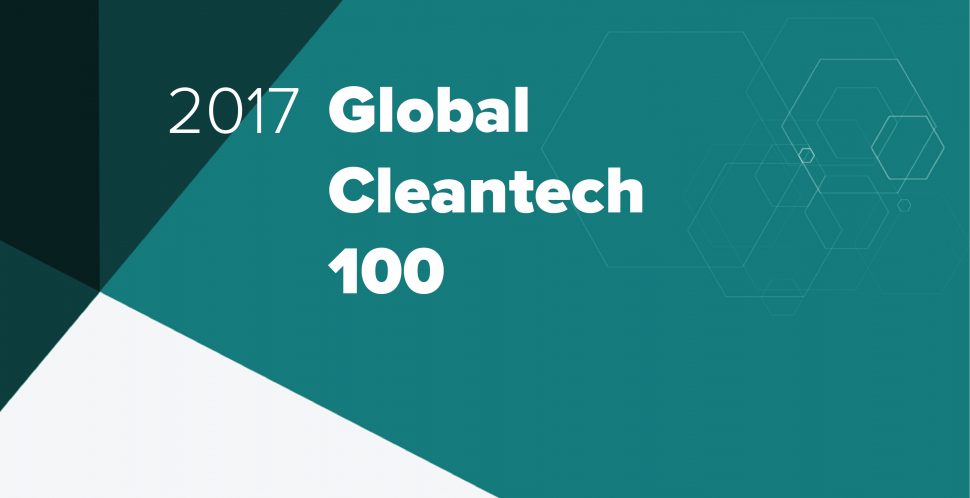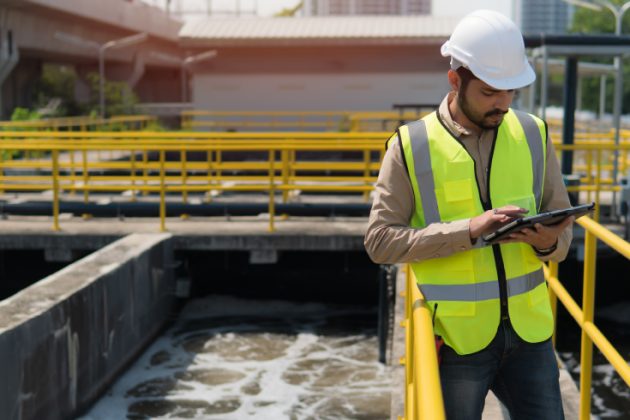John McPherson (Sector Development Manager, Clean Tech) is the longest-serving team member of the Vancouver Economic Commission. Since 2008, McPherson has worked closely with Vancouver’s clean tech startups, organizations and industry stakeholders, witnessing firsthand how the industry has flourished over time.
Clean tech is now Canada’s fastest-growing industry, outpacing all other sectors in job growth rate in 2015. Vancouver is Western Canada’s clean tech hub, accounting for approximately a quarter of all Canadian clean tech companies and receiving 27% of federal SDTC funding for technology development and demonstration projects that address climate change, air quality, clean water, and clean soil. According to the latest KPMG BC Cleantech Report, 91% of BC clean tech companies are based out of Metro Vancouver.
Global Cleantech 100 Spotlights Vancouver
Six Metro Vancouver companies were named to the 2017 Global Cleantech 100: Axine Water Technologies (wastewater treatment), General Fusion (viable fusion energy), Corvus Energy (energy storage), Embala Power Networks (smart grid), MineSense (mining tech), and Saltworks (wastewater treatment). Some of our most innovative clean tech companies – Bitstew Systems (data & machine intelligence), Semios (green agri-tech & pest control), Inventys (carbon capture tech) and Terramera (innovative pest control) – also made it to the 2016 Global 100 Ones to Watch List.
Chrysalix Venture Capital, which has been investing in the clean tech sector for over fifteen years, was honoured by Global Cleantech 100 as the Financial Investor of the Year – an award in recognition of the financial investor with the highest percentage of their qualifying cleantech portfolio companies on the list.
VEC’s Cleantech Take in the News
In an article with Postmedia reporter Derrick Penner, McPherson provided insight into the Canadian clean tech industry’s position in the context of today’s shifting geopolitical climate. One of the questions was whether clean tech leaders should be concerned about how the new Administration in the United States will tackle energy policy. With American federal policy potentially turning away from environmental goals, and back into alignment with legacy industries, such as coal, Penner asked, are clean tech companies concerned about a drop in venture capital or market interests?
Their money is more patient (than venture capitalists). The clean tech space is a lot different from technology or wireless . . . It’s about hard science that takes years to develop and a long time to perfect. But if that new battery or water-treatment system becomes an industry standard, it’s harder to displace from the market.
While venture capital might have shrunk over recent years, the number of strategic investments in the local clean tech sector has increased, and there has been an increase in strategic investments from Asia – though the amounts aren’t tracked in the same way to be easily visible.
Growing Support for Vancouver Clean Tech
Our Green and Digital Demonstration Program (GDDP) is entering its third year. Successful applicants to the GDDP have their prototypes assessed and paired with City of Vancouver-owned infrastructure – roads, buildings, lampposts, vehicle fleets – to be installed for pilot programs.
Through this program and access to the VEC’s networks in market- and investor-rich regions like the Asia-Pacific, Vancouver clean tech companies are receiving more overall support than ever. However, McPherson and members of the VEC Green Team are constantly seeking out opportunities to provide better, smarter assistance.
The GDDP’s primary limitation is that successful applicants must have a product compatible with available City-owned infrastructure. We occasionally see marvellous prototypes and solutions that simply cannot be paired with existing assets. As such, the VEC continues to explore options where applicants may demonstrate these products to a wider audience by partnering with major regional institutions and compatible private-sector assets.
The VEC is also working hard at cultivating a model for a Shared Demonstration Site where both prospective investors and public will be able to see Vancouver’s clean tech innovation for themselves.
The transformative potential of clean tech, where a single investment can change an entire industry’s performance or orientation, is why Vancouver continues to bank on this sector. Geopolitical uncertainties come and go the world over, but technologies that reduce costs and drive efficiency gains mean stable markets in the long-term.
McPherson and the Vancouver Economic Commission are driving growth in this sector through innovative work like the GDDP. By highlighting innovative products and services that can create growth in established and emerging sectors, Vancouver can continue to attract talent and investment in cutting-edge industries and spur investment in an area that will become yet more innovative, creative, and sustainable.
From the other side of the world, John McPherson (Sector Development Manager, Cleantech) writes on how the VEC is uniquely positioned to strengthen business ties between Vancouver and China.
 John McPherson
John McPherson
John McPherson is a Sector Development Manager, focusing on Cleantech for the Vancouver Economic Commission, a role he has held for the last six years. In this role, McPherson is responsible for the development of international business development programs and trade missions; providing support to Vancouver’s clean-tech business community; and facilitating business-to-business and business-to-government introductions. Before joining the Commission, McPherson served as Director of Marketing at Apex International, where he led international expansion and recruited new education partners. He has also served as the Assistant Trade Commissioner for the Consulate General of Canada in Hong Kong.



